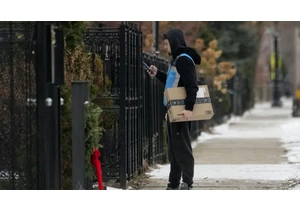When a group of the poorest households in West Bengal, India, received a one-time economic boost—an influx of capital like a cow, or an inventory of trinkets they could then sell at a market—that “big push” didn’t only help them out momentarily. It improved their lives even a decade later. The experiment in West Bengal, based on a program called “Targeting the Ultra Poor,” pioneered by a Bangladeshi NGO called BRAC, began in 2007 and was part of a series of experiments testing economic interventions in six different countries. It focused on the poorest people in villages there, those who had to beg to survive, who had no other economic resources to draw on. “There’s sort of a long traditional view, which is that maybe these people aren’t able to sustain themselves,” says Abhijit Banerjee, a Nobel Prize-winning professor of economics at MIT and coauthor of the recently published paper looking at this study’s impact 10 years later. “This was an attempt to challenge that view. In a sense, to see if we actually gave them enough of a start, would they be able to hold on to it.” The program included a single economic boost (out of 266 participating households, 82% chose livestock), along with 30 to 40 weeks of consumption support (for example, help with feeding a cow before it produced milk), and weekly visits over 18 months from staff of an India-based bank, who trained participants on finances, life skills, and health information. The people involved in this project largely hadn’t held jobs before, or received a formal education, and so needed some guidance. One participant, for instance, was a woman who had never taken a bus before, so she needed help learning how to read numbers first in order to know which bus would bring her to the market. Eighteen months after the program began, participating households were earning $170 a month. Three years later, they were earning $313 a month; 7 years later, it was up to $617 a month; and by 10 years, they had reached incomes of $680 a month. The control households that didn’t receive that economic boost also earned more money over the decade, thanks to more broad economic growth across India—but not at the same rate as those who got the initial extra push. Ten years after receiving that intervention, residents who were part of the experiment were about 30% richer compared to those not in the program. A decade after the program began, households that didn’t participate had monthly earnings of around $497—almost $200 less. What contributed to the difference? Families who received the boost were able to take advantage of better opportunities, Banerjee says, including migrating further to cities that offered better paying jobs. Those in the control group migrated less: to the nearest big city rather than the best option. Moving requires savings; the boost may have made it easier for families to save up—or it could have also given them more confidence to try, Banerjee adds. There were other benefits from participating in the program, too. Banerjee notes that mental health was an area where researchers have seen strong effects, not only from this study but other similar ones. People in households that benefited from the program were also more productive by an average of 60 more minutes after 18 months, and still by 30 more minutes after 10 years. “There is one very common concern, that somehow they will become lazy as a result of getting this opportunity; and if anything, we find the opposite. They work a little harder,” Banerjee says. “But most importantly, they’re enterprising.” In the beginning, maybe they focused on that cow as their main source of income. After a decade, maybe they’re faring better because they’ve moved and given their kids better opportunities. The families showed they can be flexible, and they can take advantage of “market opportunities.” The program in India wasn’t a direct cash transfer, since the families were given assets rather than money, but it had the same motivation as cash-transfer or guaranteed-income programs, which have grown in popularity in recent years: If we gave people a chunk of money (or other asset), does it have long-term effects? “The general point is that a big push works,” Banerjee says. “It’s not that the poorest people are quote-unquote losers. They’re people who never had a life chance, and now do, and they take it with both hands.”
Accedi per aggiungere un commento
Altri post in questo gruppo

Maybe I should begin this article by arguing that nothing spices up a mundane meeting like a creative, beautiful, or hilarious background for your Zoom calls. But the reality is that most of us ju

The move to electric vehicles is the auto industry’s biggest transformation since cars replaced horses early last century. Just about every traditional automaker is going through its own reckoning

Ever since DeepSeek burst onto the scene last month, there’s been no short

Nowadays, when you hear someone talk about faxing, there’s a decent chance it’s the punchline to a groan-inducing dad joke. (Not that I would ever be guilty of such silliness, of course.

Amazon has agreed to pay nearly $4 million to settle charges that the e-commerce company subsidized its labor costs by taking tips its 


It’s game time for Meta’s wearables: The tech giant has bought two ad spots for its Ray-Ban Meta smart glasses during Sunday’s Super Bowl broadcast, including one that has Chris Hemsworth and Chri
